How to Choose the Perfect Angle Grinder in 2023
In the domain of power instruments, the angle grinder emerges as an adaptable and essential ally for both seasoned artisans and hobbyist DIYers. Capable of cutting, grinding, polishing, and sharpening, this tool proves to be a workhorse in any workshop. Nevertheless, the market is saturated with numerous choices, complicating the task of picking the ideal angle grinder. This guide will lead you through pivotal considerations that should shape your choice, guaranteeing the selection of an angle grinder that suits your requirements seamlessly.
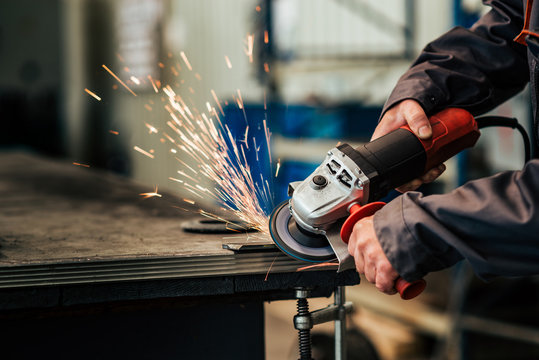
How To Choose An Angle Grinder
Understanding the Basics:
Exploring the selection procedure necessitates a foundational grasp of an angle grinder, a handheld power tool comprising a motor-driven spindle with an interchangeable disc. The disc’s versatility provides various functions tailored to specific tasks, and understanding these basics lays the groundwork for a well-informed choice.

Power Requirements:
When selecting an angle grinder, a crucial factor to weigh is its power capacity. These grinders vary in size, commonly falling between 4.5 to 9 inches. The tool’s power is intricately linked to the disc size, wherein larger discs typically demand more power. If your tasks involve light-duty activities like polishing or sharpening, a smaller, less powerful grinder might be adequate. On the other hand, for intense applications such as cutting through metal or masonry, opting for a larger and more robust grinder becomes essential.

Speed Matters:
The rotation speed of the disc is quantified in revolutions per minute (RPM), with specific tasks requiring distinct speeds. For example, tasks like grinding and cutting are optimized with higher speeds, whereas polishing necessitates lower speeds to prevent harm to the workpiece. Opting for an angle grinder equipped with variable speed options offers versatility, enabling you to tailor the tool to different tasks.
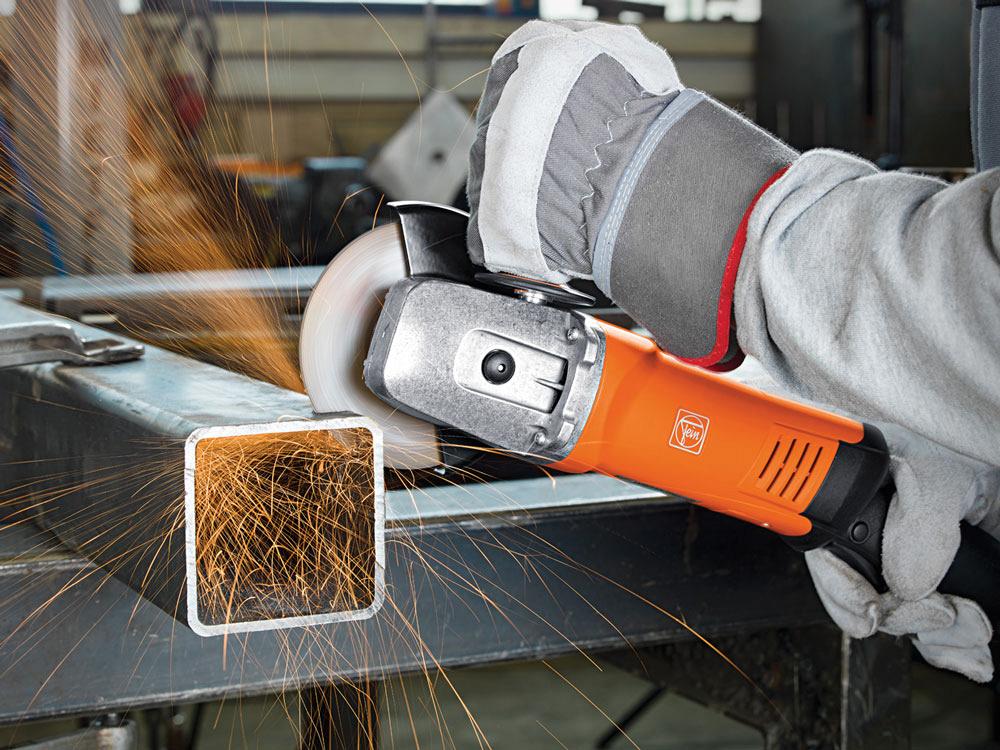
Power Source: Corded vs. Cordless:
Angle grinders come in corded and cordless versions, with the corded models ensuring a consistent power source for extended usage, while the cordless counterparts offer enhanced mobility and flexibility at the expense of limited battery life. Assess your work setting and project requirements to determine the power source that best suits your needs.

Comfort and Ergonomics:
Since an angle grinder is a handheld tool, comfort and ergonomics play a vital role in its usability. Look for features such as a comfortable grip, balanced weight distribution, and minimal vibrations. These factors contribute to reduced fatigue during extended use, ultimately enhancing your overall experience with the tool.

Safety Features:
Safety should always be a top priority when working with power tools. Angle grinders can pose risks such as kickback and disc shattering. Choose a grinder with safety features like a paddle switch that can be easily turned off in case of an emergency, a disc brake that rapidly stops the spinning disc, and a protective guard to shield the user from debris.
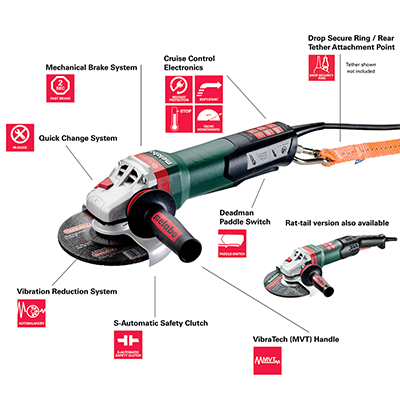
Durability and Build Quality:
Opting for a sturdy and expertly crafted angle grinder guarantees prolonged durability and consistent functionality. Evaluate both the composition of the tool’s construction and the standing of the maker. Seek out grinders featuring resilient casings, long-lasting switches, and sealed bearings to endure the demands of regular usage.
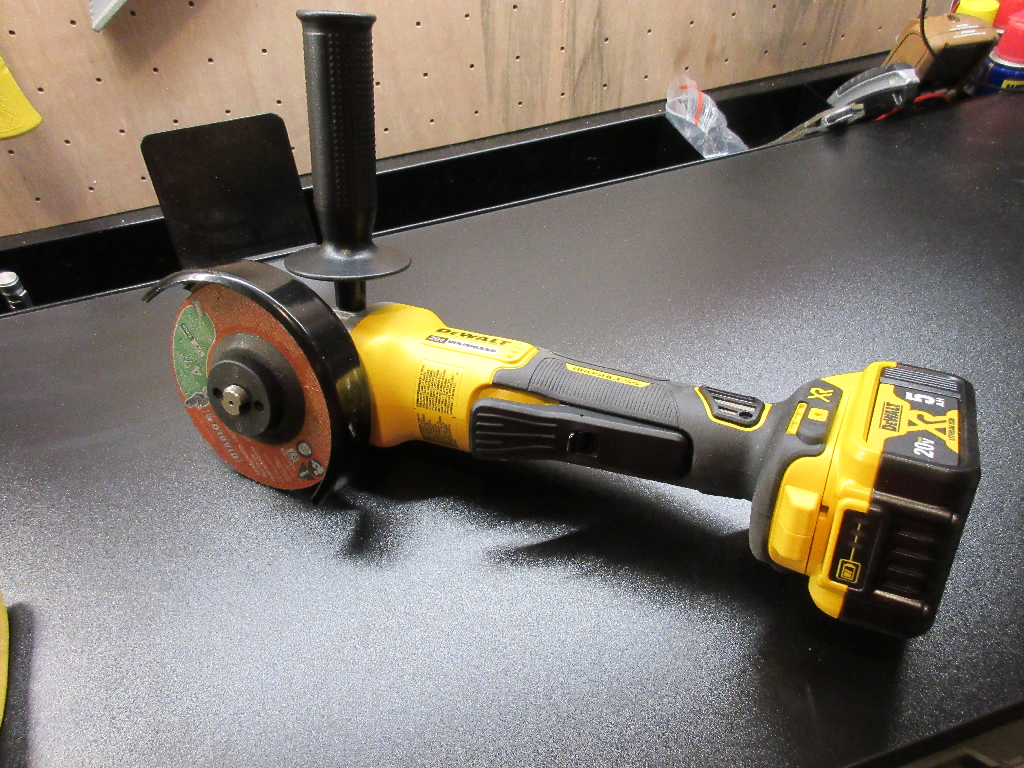
Disc Compatibility:
Angle grinders can support a range of discs tailored for particular purposes like cutting, grinding, or polishing. Verify that the selected grinder is suitable for the discs’ type and size you intend to employ. Confirm the spindle thread size and the maximum disc diameter the grinder can handle.

Brand Reputation and Reviews:
Researching the reputation of a brand and reading user reviews can provide valuable insights into the performance and reliability of a particular angle grinder. A well-established brand with positive feedback from users is more likely to deliver a quality product.
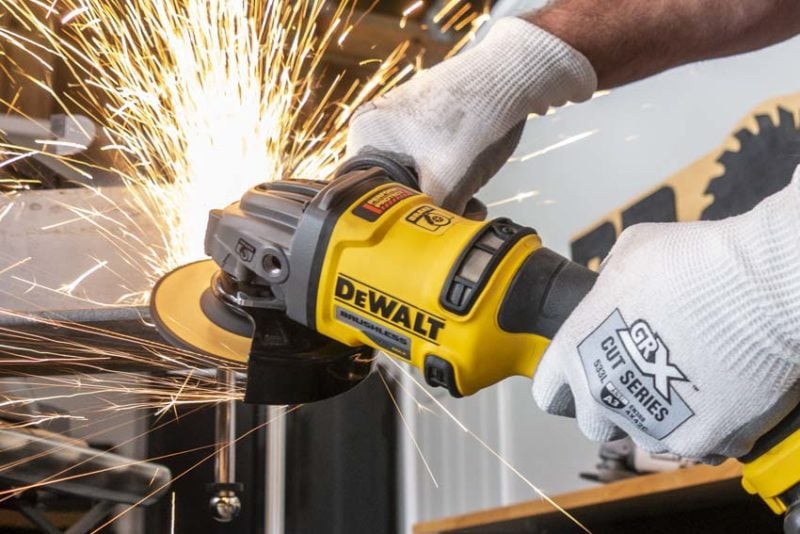
Budget Considerations:
Although the allure of choosing the most economical angle grinder may be strong, finding a middle ground between cost-effectiveness and excellence is paramount. Determine a budget that aligns with your requirements and the planned utility of the tool. Allocating a slightly higher budget for a grinder of superior quality has the potential to yield benefits in terms of both performance and durability.
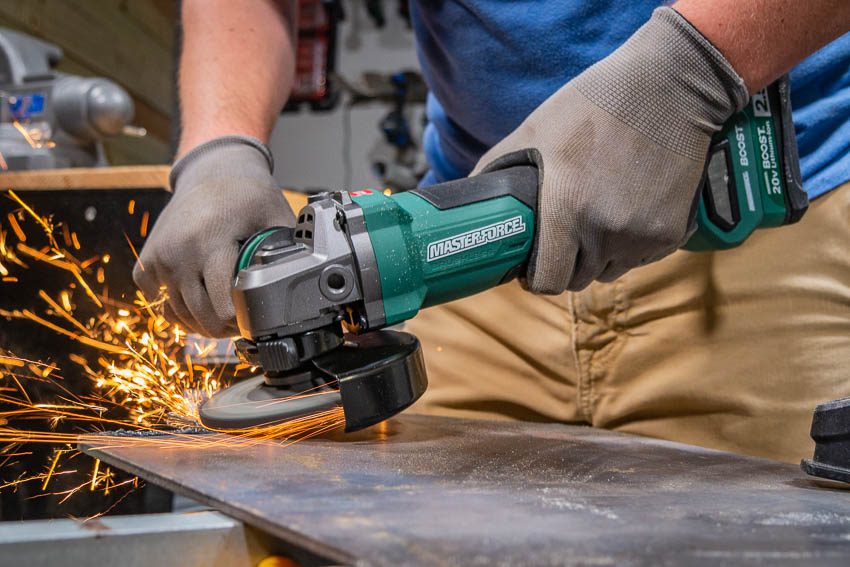
Conclusion:
Selecting the ideal angle grinder requires a careful evaluation of multiple elements, encompassing power, speed, safety attributes, and the standing of the brand. By comprehending your distinct requirements and the requisites of your tasks, you can arrive at an educated choice, guaranteeing that the chosen angle grinder becomes an essential tool in your workspace. Keep in mind that a wisely chosen angle grinder not only boosts work efficiency but also adds to a safer and more pleasurable working environment.
READ MORE: WHAT IS BUTTON HEAD SCREWS , AND PROPERTIES , APPLICATIONS
READ MORE: How to start a new startup business on Deepawali 2023




